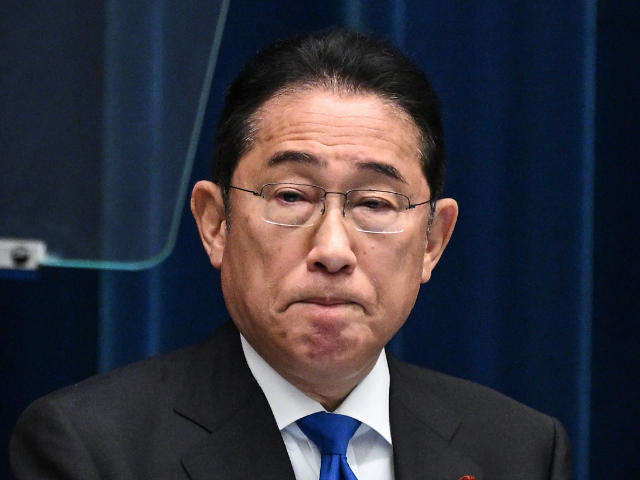Japanese Prime Minister Kishida Fumio announced Wednesday that he will step down in September rather than seek reelection. Kishida’s support has steadily eroded during his three years in office due to economic troubles and a string of political scandals.
“Politics cannot function without public trust,” Kishida said at a press conference on Wednesday, conceding that public trust in his government has declined to untenable levels.
“I made this heavy decision thinking of the public, with the strong will to push political reform forward,” he said, expressing faith in his Liberal Democratic Party (LDP) and its platform.
“We need to clearly show an LDP reborn. In order to show a changing LDP, the most obvious first step is for me to bow out,” he said.
“Once a new leader is decided, I hope to see everyone unite and form a dream team to achieve politics that can gain public understanding,” he added.
Kishida’s administration suffered an early setback when high-ranking members of the LDP were linked to the Unification Church, the Japanese branch of the religious organization that South Korean Rev. Sun Myung-moon created in 1954, the members of which are derisively known as “Moonies” in the Western world.
The Unification Church in Japan was accused of serious fundraising abuses, and LDP members linked to the Church were accused of corruption for covering those abuses up. Kishida’s approval ratings tumbled after the Unification Church scandal broke and never really recovered, even after he reshuffled his cabinet to get away from the story and supported a law designed to thwart abusive fundraising practices.
Kishida’s support suffered another blow in December when a massive financial scandal engulfed the LDP, torpedoing the careers of more cabinet ministers. The scandal involved LDP members who evaded laws against corporate donations to individual lawmakers.
The prime minister’s approval rating crashed to around 20 percent after the LDP corruption scandal. Public anger over high inflation and the sky-high cost of living kept him from ever getting back on his feet
The leader of Japan’s main opposition party, Izumi Kenta, suggested Kishida was resigning merely to redirct attention from the LDP’s scandals.
“Whenever the party is in crisis, LDP, for its own survival, has repeatedly changed prime minister and party leader to reset and have voters forget the past. It’s their strategy and people should not be tricked by it,” Izumi said.
Whatever else one might say about the LDP, its strategy of dumping unpopular leaders like so much ballast thrown overboard has been working for almost seven decades. The LDP was the ruling party in the Japanese parliament for all but four of those years.
Possible successors to 67-year-old Kishida include another venerable party stalwart, 68-year-old Foreign Minister Motegi Toshimitsu, and the runner-up for leadership when Kishida became prime minister in 2021, Digital Information Minister Kono Taro.
Kono, 61, is one of the most popular politicians in Japan, including among young people, who appreciate his high-tech portfolio and goofy sense of humor. Some in the LDP think it would be better to go with a younger candidate, such as 43-year-old Environment Minister Koizumi Shinjiro or 49-year-old Minister of Economic Security Kobayashi Takayuki.
CNBC on Wednesday quoted observers who drew similarities between Kishida’s resignation and U.S. President Joe Biden dropping out of the 2024 election.
“To me, this is Kishida ‘pulling a Joe Biden’ and realizing, wisely, he’s just not the best face for his party come election time,” said William Pesek, author of Japanization: What the World Can Learn from Japan’s Lost Decades.
“He was a dead man walking for a long time. And I think what really upended him at the end was the weakness of the yen, it was basically BOJ’s [Bank of Japan’s] policy mistakes that got him really out of the polls,” said Asymmetric Advisors Market Strategist Amir Anvarzadeh.
CNBC backed up Anvarzadeh’s analysis by quoting a note from Credit Agricole that said the BOJ’s decision to raise its benchmark interest rate at the end of July drove the final nail into Kishida’s political coffin by strengthening the yen and triggering a “dramatic sell-off in global markets.”
